Many people take B Complex Vitamins to try and improve their health including me. I thought I would do a bit of research so that we could all be a bit more aware of what the B Complex Vitamins are for, how much B Complex to get, and the problems with deficiencies.
What are the B complex vitamins?
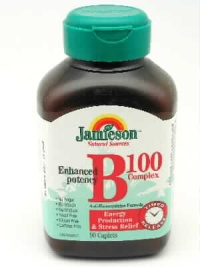 The B vitamins are: B1 (thiamine), B2 (riboflavin), B3 (niacin), B5 (pantothenic acid), B6, B7 (biotin), B12, Folic acid. When we refer to B Complex it tends to be a supplement that contains all of these vitamins.
The B vitamins are: B1 (thiamine), B2 (riboflavin), B3 (niacin), B5 (pantothenic acid), B6, B7 (biotin), B12, Folic acid. When we refer to B Complex it tends to be a supplement that contains all of these vitamins.
One of the issues with all of the B complex vitamins is that they are water soluble, this means that you will pee them out if unused and your body does not store them.
This also means that you need to always be taking your B Complex vitamins or have a diet rich in them to stay healthy.
What are B Complex Vitamins Needed For?
The B Complex vitamins help the process your body uses to get or make energy from the food you eat. Many people (me included) also take a supplement of Vitamin B Complex which includes all the B Vitamins to improve energy, stamina, and stress handling.
Although it is routinely taken for these reasons I am not sure how much real evidence there is that it is actually doing this as opposed to just anectodal stories from people saying it helps for stress.
B Vitamins also help form red blood cells. You can get B vitamins from proteins such as fish, poultry, meat, eggs, and dairy products. Leafy green vegetables, beans, and peas also have B vitamins. Many cereals and some breads have added B vitamins.
Where do B Vitamins Come from?
“Vitamin B” was once thought to be a single nutrient that existed in extracts of rice, liver, or yeast. Researchers later discovered these extracts contained several vitamins, which were given distinguishing numbers.
Unfortunately, this has led to an erroneous belief among non-scientists that these vitamins have a special relationship to each other. Further adding to confusion has been the “unofficial” designation of other substances as members of the B-complex, such as choline, inositol, and para-aminobenzoic acid (PABA), even though they are not essential vitamins.
Each member of the B-complex has a unique structure and performs unique functions in the human body. Vitamins B1, B2, B3, and biotin participate in different aspects of energy production, vitamin B6 is essential for amino acid metabolism, and vitamin B12 and folic acid facilitate steps required for cell division.
Each of these vitamins has many additional functions. However, contrary to popular belief, no functions require all B-complex vitamins simultaneously.
How much B Vitamins do I need?
Human requirements for members of the B-complex vary considerably from 3 mcg per day for vitamin B12 to 18 mg per day for vitamin B3 in adult males, for example. Therefore, taking equal amounts of each oneas provided in many B-complex supplementsmakes little sense.
Furthermore, there is little evidence supporting the use of megadoses of B-complex vitamins to combat everyday stress, boost energy, or control food cravings, unless a person has a deficiency of one or more of them.
Again, contrary to popular belief, there is no evidence indicating people should take all B vitamins to avoid an imbalance when one or more individual B vitamin is taken for a specific health condition.
Most multivitamin-mineral products contain the B-complex along with the rest of the essential vitamins and minerals. Since they are more complete than B-complex vitamins alone, multiple vitamin-mineral supplements are recommended to improve overall micronutrient intake and prevent deficiencies.
What Is Wrong With Vitamin B Deficiency
As with other vitamin classes, a deficiency in the B vitamin can result in several different conditions such as weight loss, weakness, stress, diarrhea, dementia, anemia, and other things.
A deficiency in B vitamins isn’t good for anyone, as the entire family contributes to your body. If you have a deficiency of any of the variation of this vitamin, you should always do something about it just as fast as you can.
As a whole, the B vitamin family will work to give you healthier skin, a faster metabolism, and an overall better immune system. They can also help you to fight back against depression and stress as well, which is something we could all use.
Are there any side effects or interactions To Taking Vitamin B Supplements?
Vitamin B-complex includes several different components, each of which has the potential to interact with drugs. It is recommended that you discuss the use of vitamin B-complex and your current medication(s) with your doctor or pharmacist.
Vitamin B1 Thiamin – 1.5 mg a day
 Thiamin (vitamin B1), one of the B Complex Vitamins, is widely available in the diet. It is essential for the metabolism of carbohydrates (to produce energy) and for normal nerve and heart function. Thiamin is not toxic.
Thiamin (vitamin B1), one of the B Complex Vitamins, is widely available in the diet. It is essential for the metabolism of carbohydrates (to produce energy) and for normal nerve and heart function. Thiamin is not toxic.
Thiamin deficiency often occurs with other B vitamin deficiencies. People whose diet consists mainly of highly processed carbohydrates (such as polished white rice, white flour, and white sugar) are at risk of thiamin deficiency.
Polishing rice removes almost all of the vitamins. Alcoholics, who often substitute alcohol for food and thus do not consume enough thiamin, are at high risk of developing this deficiency.
Thiamin deficiency may also result from disorders or conditions that increase the body’s need for thiamin. Examples are thyroid disorders, pregnancy, breastfeeding, and fever. Liver disorders may interfere with the processing (metabolism) of the vitamin.
Some of the best sources of thiamin are pork, ham, dark green leafy vegetables, fortified whole-grain cereals and baked goods, wheat germ, enriched rice, green pea, lentils and nuts
Vitamin B2 Riboflavin – 1.7 mg a day
 Riboflavin is one of the B complex vitamins. Riboflavin (vitamin B2) works with the other B vitamins. It is important for body growth and red blood cell production and helps in releasing energy from carbohydrates. Because riboflavin is destroyed by exposure to light, foods with riboflavin should not be stored in glass containers that are exposed to light.
Riboflavin is one of the B complex vitamins. Riboflavin (vitamin B2) works with the other B vitamins. It is important for body growth and red blood cell production and helps in releasing energy from carbohydrates. Because riboflavin is destroyed by exposure to light, foods with riboflavin should not be stored in glass containers that are exposed to light.
Lean meats, eggs, legumes, nuts, green leafy vegetables, dairy products, and milk provide riboflavin in the diet. Breads and cereals are often fortified with riboflavin.
Deficiency of riboflavin is not common in the United States because this vitamin is plentiful in the food supply. Symptoms of significant deficiency syndromes include sore throat, swelling of mucous membranes, mouth or lip sores, anemia, and skin disorders.
There is no known poisoning from riboflavin.
Vitamin B3 Niacin – 20 mg a day
 Niacin is used with diet changes (restriction of cholesterol and fat intake) to reduce the amount of cholesterol and certain fatty substances in your blood. Niacin is also used to prevent and treat pellagra, a disease caused by inadequate diet and other medical problems.
Niacin is used with diet changes (restriction of cholesterol and fat intake) to reduce the amount of cholesterol and certain fatty substances in your blood. Niacin is also used to prevent and treat pellagra, a disease caused by inadequate diet and other medical problems.
These B Complex Vitamins assists in the functioning of the digestive system, skin, and nerves. It is also important for the conversion of food to energy. Niacin is water-soluble, which means it is not stored in the body.
Water-soluble vitamins dissolve in water and the body very quickly which mean you can and need to always be getting them. Leftover amounts of the vitamin leave the body through the urine.
That means you need a continuous supply of such vitamins in your diet.
You need about 20 mg of Niacin a day. It is found in dairy products, poultry, fish, lean meats, nuts, and eggs. Legumes and enriched breads and cereals also supply some niacin.
Vitamin B5 Pantothenic Acid – 5-10 mg per day
 Pantothenic acid (vitamin B5) is essential to all life and is a component of coenzyme A (CoA), a molecule that is necessary for numerous vital chemical reactions to occur in cells. Pantothenic acid is essential to the metabolism of carbohydrates, proteins, and fats, as well as for the synthesis of hormones and cholesterol.
Pantothenic acid (vitamin B5) is essential to all life and is a component of coenzyme A (CoA), a molecule that is necessary for numerous vital chemical reactions to occur in cells. Pantothenic acid is essential to the metabolism of carbohydrates, proteins, and fats, as well as for the synthesis of hormones and cholesterol.
Pantothenic acid deficiency is exceedingly rare and likely only occurs only in cases of the most severe life-threatening malnutrition. Most individuals likely obtain sufficient amounts from dietary sources.
The best sources of these B complex vitamins are eggs, yeast, poultry, meat, fish, liver, milk, sunflower seeds, soya beans and bean flour, peas, peanuts, peanut butter, legumes, broccoli, collard greens, bananas, oranges, mushrooms, whole grain products and wheat germ.
Pantothenic acid has been used or studied for numerous health conditions, but has not been clearly demonstrated as beneficial for any. Oral, topical (on the skin), or injected forms have been used.
Vitamin B6 – 2 mg a day
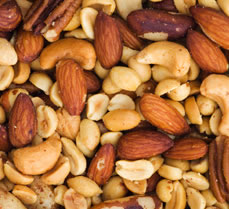 Vitamin B6 exists in three major chemical forms: pyridoxine, pyridoxal, and pyridoxamine. These B Complex Vitamins performs a wide variety of functions in your body and is essential for your good health.
Vitamin B6 exists in three major chemical forms: pyridoxine, pyridoxal, and pyridoxamine. These B Complex Vitamins performs a wide variety of functions in your body and is essential for your good health.
For example, vitamin B6 is needed for more than 100 enzymes involved in protein metabolism. It is also essential for red blood cell metabolism. The nervous and immune systems need vitamin B6 to function efficiently, and it is also needed for the conversion of tryptophan (an amino acid) to niacin (a vitamin).
Hemoglobin within red blood cells carries oxygen to tissues. Your body needs vitamin B6 to make hemoglobin. Vitamin B6 also helps increase the amount of oxygen carried by hemoglobin.
A vitamin B6 deficiency can result in a form of anemia that is similar to iron deficiency anemia.
Vitamin B6, through its involvement in protein metabolism and cellular growth, is important to the immune system. It helps maintain the health of lymphoid organs (thymus, spleen, and lymph nodes) that make your white blood cells.
Animal studies show that a vitamin B6 deficiency can decrease your antibody production and suppress your immune response.
Vitamin B6 also helps maintain your blood glucose (sugar) within a normal range. When caloric intake is low your body needs vitamin B6 to help convert stored carbohydrate or other nutrients to glucose to maintain normal blood sugar levels. While a shortage of vitamin B6 will limit these functions, supplements of this vitamin do not enhance them in well-nourished individuals
What foods provide vitamin B6?
Vitamin B6 is found in a wide variety of foods including fortified cereals, beans, nuts, meat, poultry, fish, liver, and some fruits and vegetables.
Vitamin B12 6 µg (micrograms) a day
 Vitamin B12 is an essential B Complex Vitamins that is commonly found in a variety of foods such as fish, shellfish, meat, and dairy products. Vitamin B12 is frequently used in combination with other B vitamins in a vitamin B complex formulation.
Vitamin B12 is an essential B Complex Vitamins that is commonly found in a variety of foods such as fish, shellfish, meat, and dairy products. Vitamin B12 is frequently used in combination with other B vitamins in a vitamin B complex formulation.
It helps maintain healthy nerve cells and red blood cells and is also needed to make DNA, the genetic material in all cells. Vitamin B12 is bound to the protein in food.
Hydrochloric acid in the stomach releases B12 from protein during digestion. Once released, B12 combines with a substance called intrinsic factor (IF) before it is absorbed into the bloodstream.
The human body stores several years’ worth of vitamin B12, so nutritional deficiency of this vitamin is extremely rare. Elderly are the most at risk.
However, deficiency can result from being unable to use vitamin B12. Inability to absorb vitamin B12 from the intestinal tract can be caused by a disease known as pernicious anemia. Additionally, strict vegetarians or vegans who are not taking in proper amounts of B12 are also prone to a deficiency state.
A day’s supply of vitamin B12 can be obtained by eating 1 chicken breast, 1 hard-boiled egg, 1 cup plain low-fat yogurt, or 1 cup milk and 1 cup raisin bran.
Folic Acid or Folate – 400 µg (micrograms) a day
 Folic acid is the synthetic form of folate that is found in supplements and added to fortified foods. Folic acid is on of the B complex vitamins. It helps the body make healthy new cells. Everyone needs folic acid.
Folic acid is the synthetic form of folate that is found in supplements and added to fortified foods. Folic acid is on of the B complex vitamins. It helps the body make healthy new cells. Everyone needs folic acid.
For women who may get pregnant, it is really important. When a woman has enough folic acid in her body before and during pregnancy, it can prevent major birth defects of her baby’s brain or spine.
Folate helps produce and maintain new cells. This is especially important during periods of rapid cell division and growth such as infancy and pregnancy. Folate is needed to make DNA and RNA, the building blocks of cells.
It also helps prevent changes to DNA that may lead to cancer. Both adults and children need folate to make normal red blood cells and prevent anemia. Folate is also essential for the metabolism of homocysteine, and helps maintain normal levels of this amino acid.
Foods with folic acid in them include leafy green vegetables, fruits, dried beans, peas and nuts. Enriched breads, cereals and other grain products also contain folic acid.
If you don’t get enough folic acid from the foods you eat, you can also take it as a dietary supplement.
As you can see there is very little chance of overdosing on B Complex Vitamins although it is critical to make sure that you are taking them, or getting them in your diet everyday. As I find out more I hope to resolve this idea that B Complex Vitamins supplemented are good for helping stress, energy or stamina.
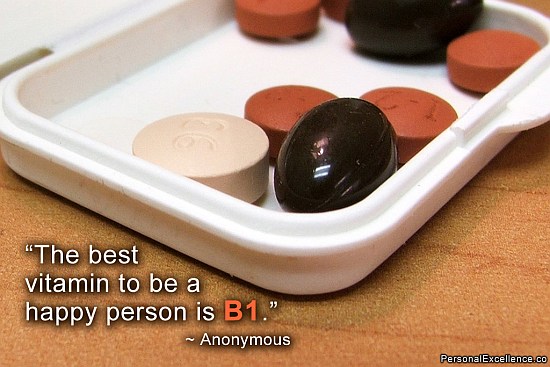


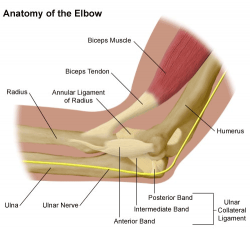
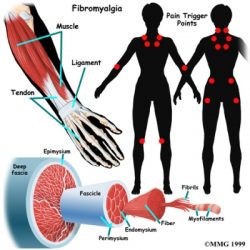





I take a B Complex called Isotonix, which is a powder you mix with water and drink on an empty stomach. I love the taste, and it gives me lots of energy and has reduced my stress level. I think it’s because it’s so highly absorbably, 95% in less than 10 minutes, so it’s very effective.
Take a look at the ingredients in 5-Hour energy. It makes sense that it’s all mega doses of vitamin B.
I used to use supplements, but I find just eating vitamin B rich foods through out the day seems to make me feel better.